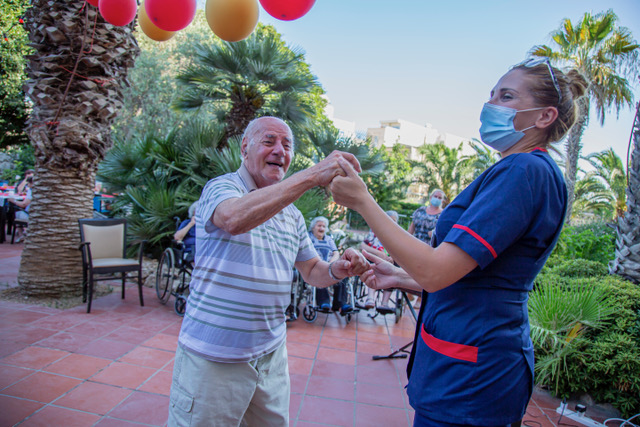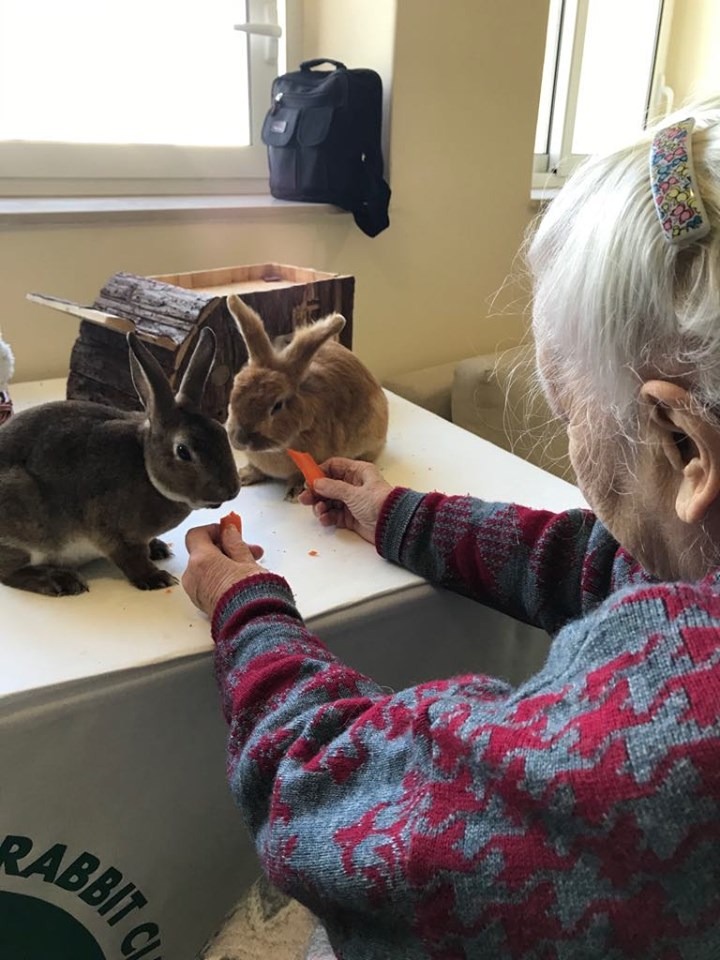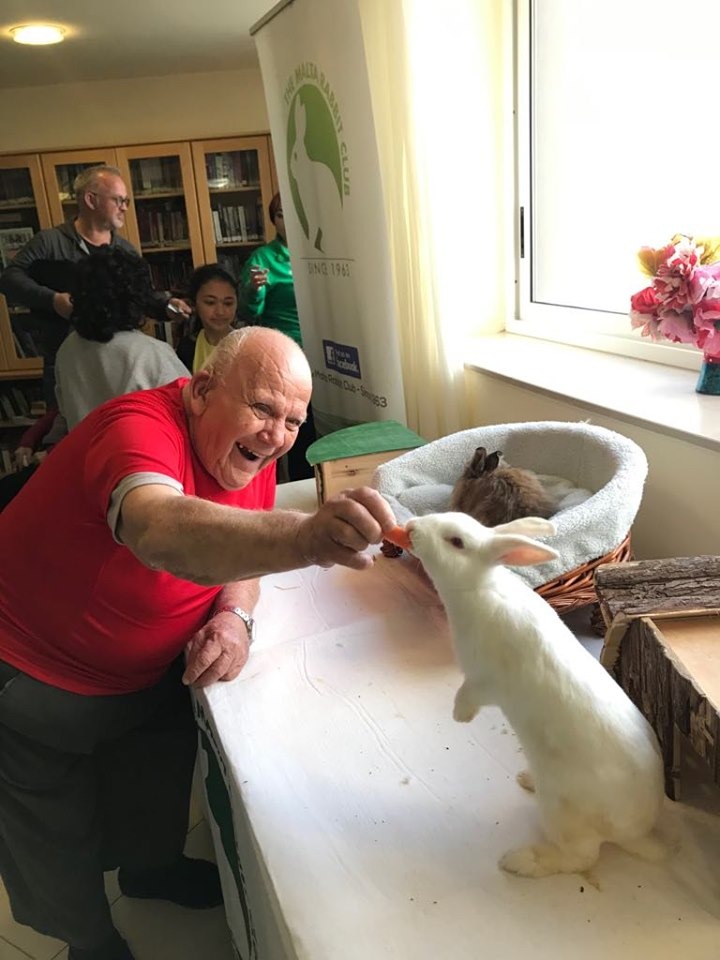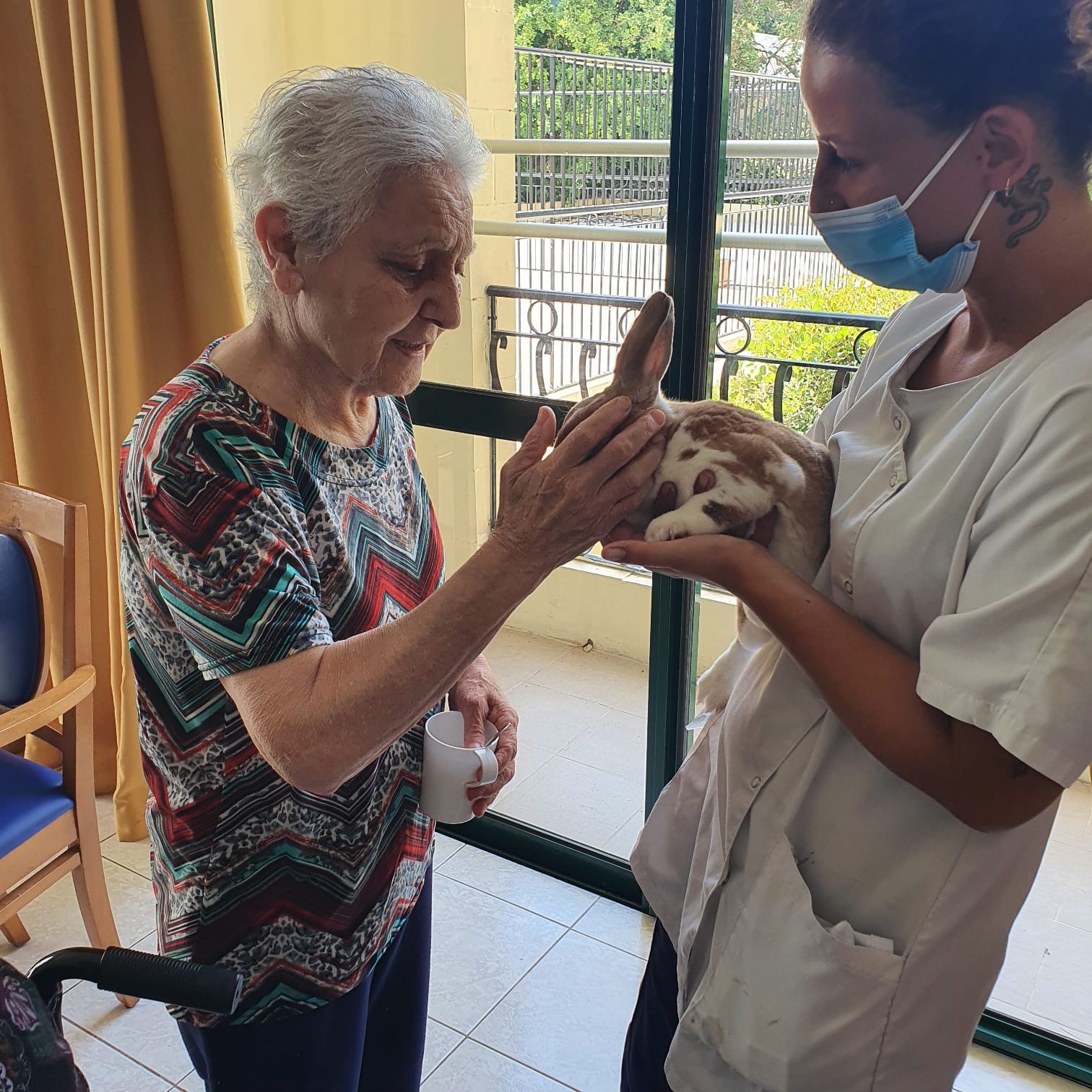
There may come a time when the person living with Alzheimer’s will need more care than anyone at home can offer. CareMalta provides quality services in nursing and residential care for older persons, as well as specialised dementia care, across the nine elderly homes it operates. However, it also strongly believes that participation in daily residential life through various social activities for its residents should form an integral part of the care process.
There is accumulating evidence which shows that persons with Alzheimer’s enjoy music. Their ability to positively respond to music is also noticeable in the late and severe stages of dementia. Music activities can help improve behaviour, especially agitation, mood and cognition. Music has a distinct ability to elicit emotions and memories. This will provide an important link to the person’s past and close the gap between the caregiver and the person suffering from Alzheimer’s through a non-verbal communication channel. A calm person will cooperate more with their caregiver, and benefit from the care being provided.
The good thing about music is that it is easily and widely accessible. The different genres, from jazz to classical and mellow, can serve as a background to any activity being organised. Specific music therapy features regularly on our weekly activities programme. Singing sessions, reminiscing through music therapy, or even a special guest playing a specific musical instrument, are all examples of such activities. Technology has also helped a great deal in combining music and activities, hence setting the right environment.
Music is around us from the cradle to the grave. Music appreciation and interest have a special effect on our cognitive behaviour, whether calming or stimulating, throughout our life. This will continue in the eventuality of us acquiring Alzheimer’s or any other form of dementia.
Animal-assisted activities (AAA) are also part and parcel of daily residential life across all CareMalta elderly homes and work wonders with older persons’ well-being.
A study conducted in 2019 on ‘The effects of animal-assisted activity on the behaviour of older persons living with dementia within a Maltese long-term care (LTC) facility’ revealed an overall decrease in frequency and sometimes cessation in negative behaviours of the older person participants. There was also an improvement in social interaction and communication.
Carried out by former care administrator Thea Debonoas part of her master’s degree, the aim of the study, authored together with Dr Maria Aurora Fenech from the Department of Gerontology and Dementia Studies at the University of Malta, was to investigate the effects of AAA on the behaviours of older persons living with dementia within a Maltese LTC facility.
Being the first of its nature within the local context, a qualitative prospective approach was used. Following a pilot study on two other residents, a series of 12 AAA sessions were administered by the young researcher with the help of a six-year-old white mixed breed chihuahua female dog. The results support the fact that AAA improves behavioural and psychological symptoms of dementia in older persons living with the condition in a LTC facility and that these activities work best if tailored to the needs and characteristics of the individual patient.
Alzheimer’s will be our next big challenge. As numbers are on the increase, unfortunately, neuroscience has not yet come up with evidence-based results on how exactly the cerebral changes affect behaviour and memory. This is impeding scientists to develop an effective pharmacological treatment to slow down or stop the progression of the disease. As time passes, there will be a bigger demand for dementia-related services, with the burden on family members and informal caregivers eventually taking its toll.
The best possible approach is to improve their lives through activities and involvement, keeping the interests of Alzheimer’s patients alive while also keeping them safe.




